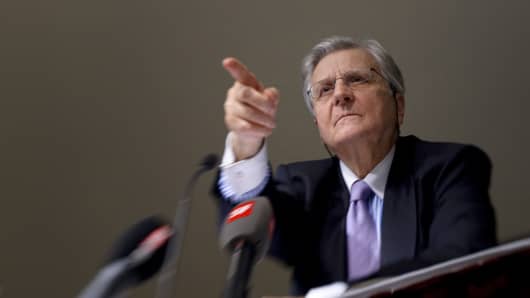Jean-Claude Trichet’s hawkish comments on inflationary pressures and the resultant jump in the euro following Thursday’s European Central Bank's press conference talk has turned attention back to central bank exit strategies, an economist said Friday.
“Clearly, the way the ECB sees things is at variance with the markets’ perception, leaving the markets vulnerable to shock ECB measures," Stephen Lewis, chief economist at Monument Securities, said.
"That probably explains why market reaction to Mr Trichet’s words was so sharp."
Trichet may be seeing similarities with 2008, when he raised rates due to higher commodity prices, only to be widely criticized by Anglo-Saxon investors given the Lehman crisis later that year, Lewis said.
“The distinctive features at that time were a surge in commodity prices and turmoil in money markets. Central bankers now face a situation where, once again, prices of raw materials and oil are rising alarmingly. At the same time, strains in euro zone government bond markets are widely cited as a threat to global economic growth.”
“There is reason to believe the latest rise in commodity prices owes much to the flood of liquidity created by major central banks’ asset purchases,” Lewis said.
“As soon as those purchases cease, prices of commodities will probably ease back from liquidity-boosted levels to lower ranges that are underpinned by producer/user balances,” he added.
Bernanke’s recent talk of deflation risks easing could indicate that a third round of quantitative easing may not happen.
“Mr Bernanke’s recent talk...is probably best interpreted as a signal that the chances of the Fed’s mounting a QE3 operation are receding and that Fed asset purchases will cease, as scheduled, in June.”
“The outlook for (commodity) prices seemed highly uncertain,” Lewis concluded.



